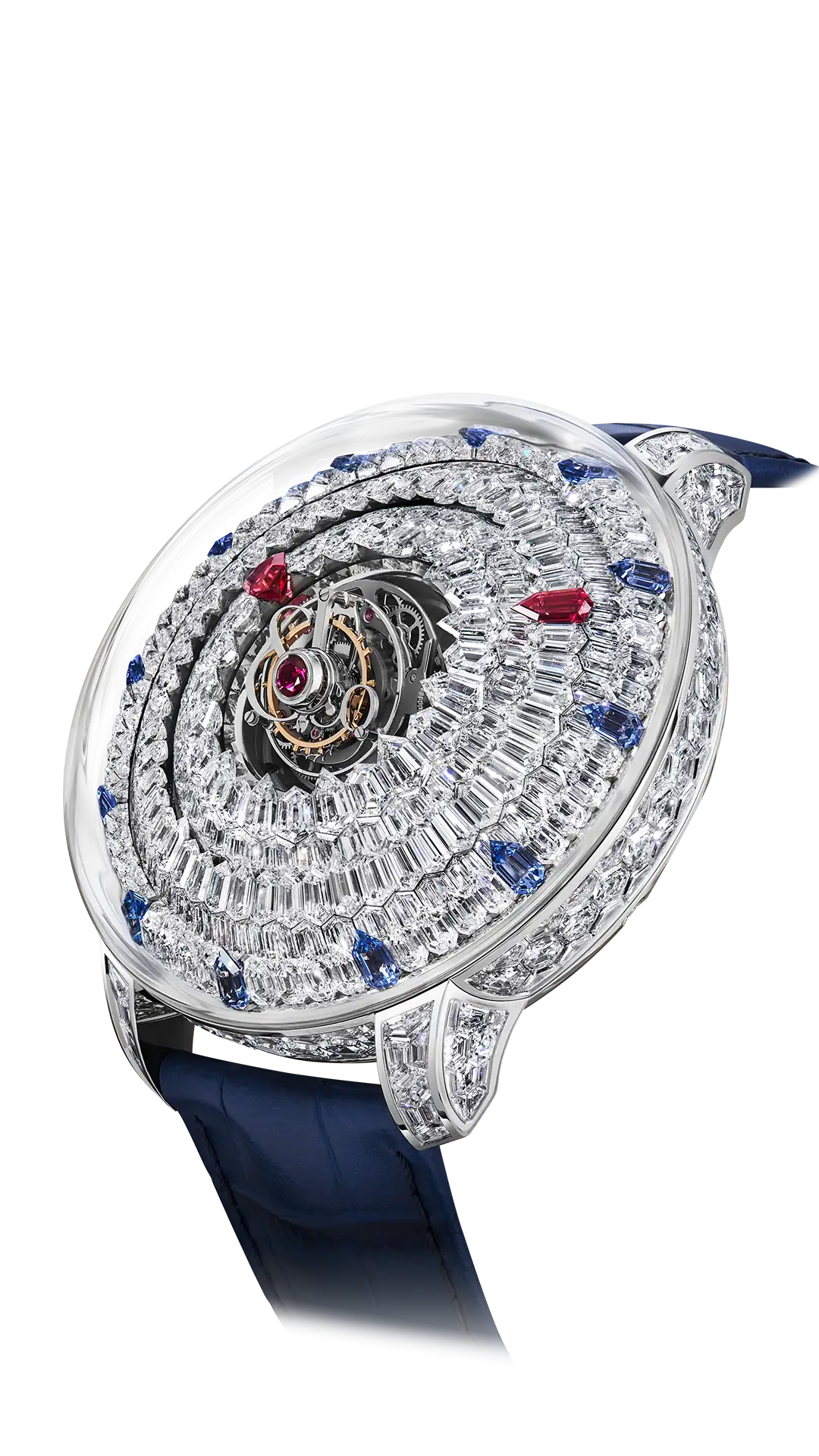
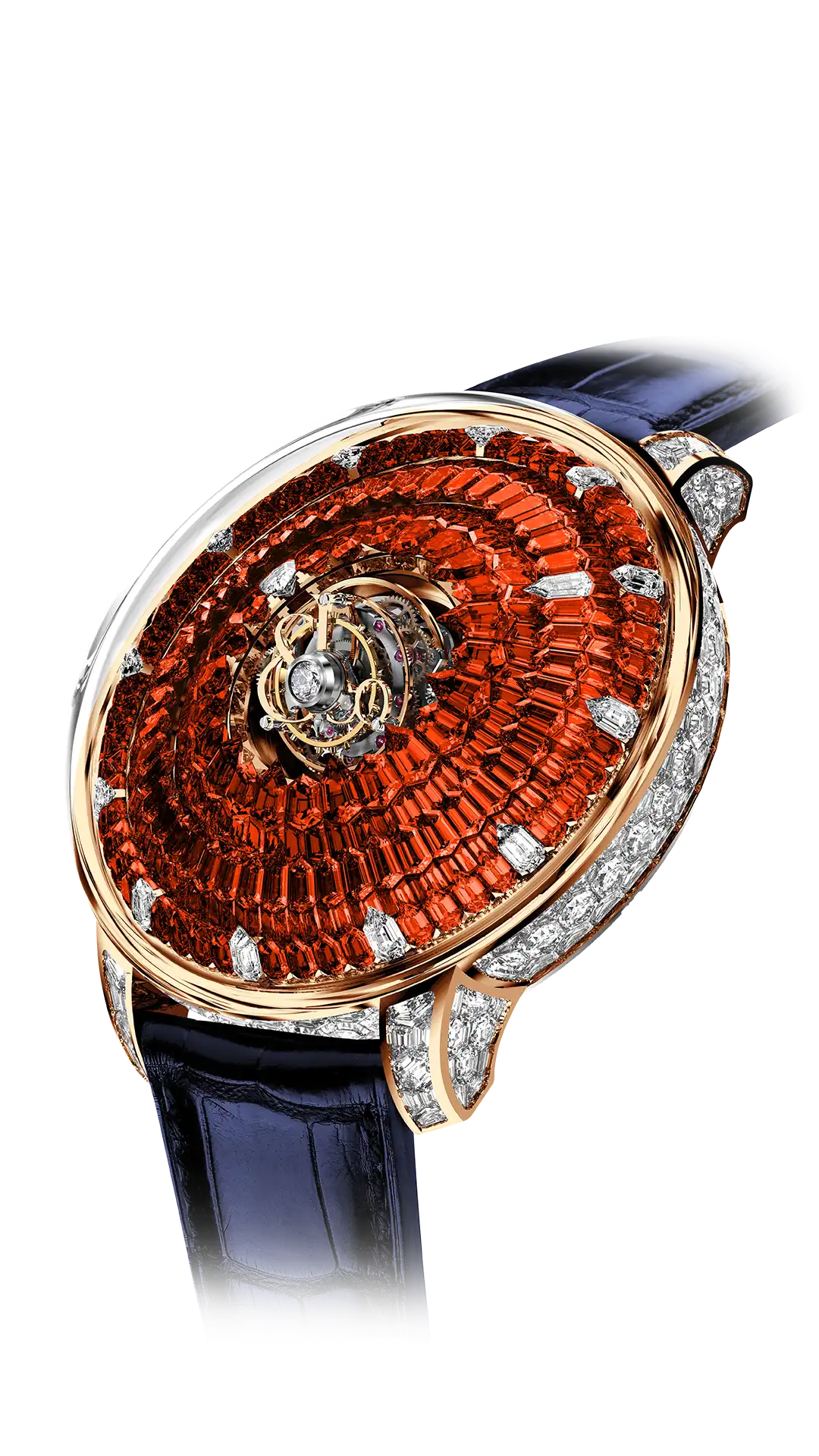
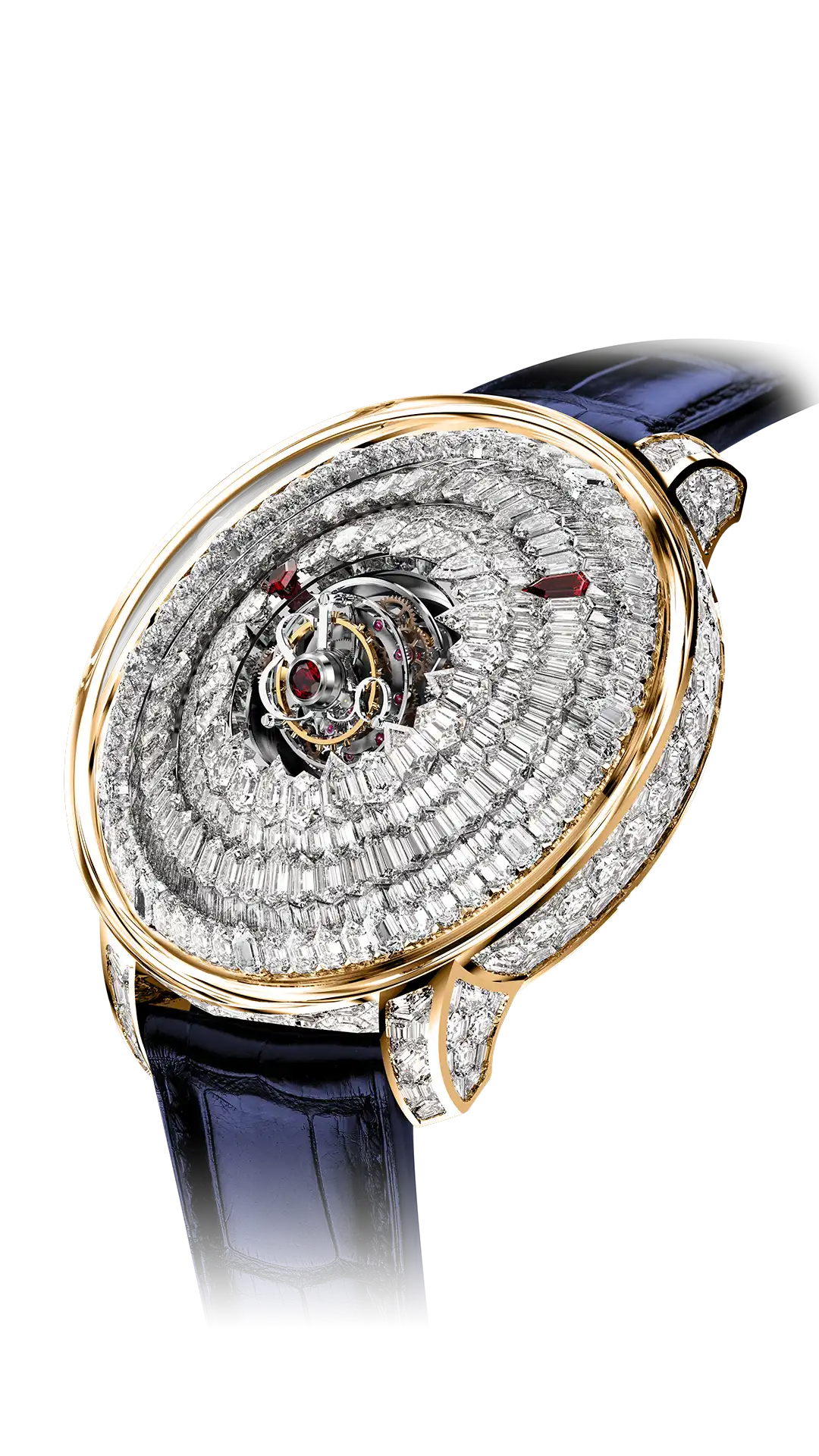
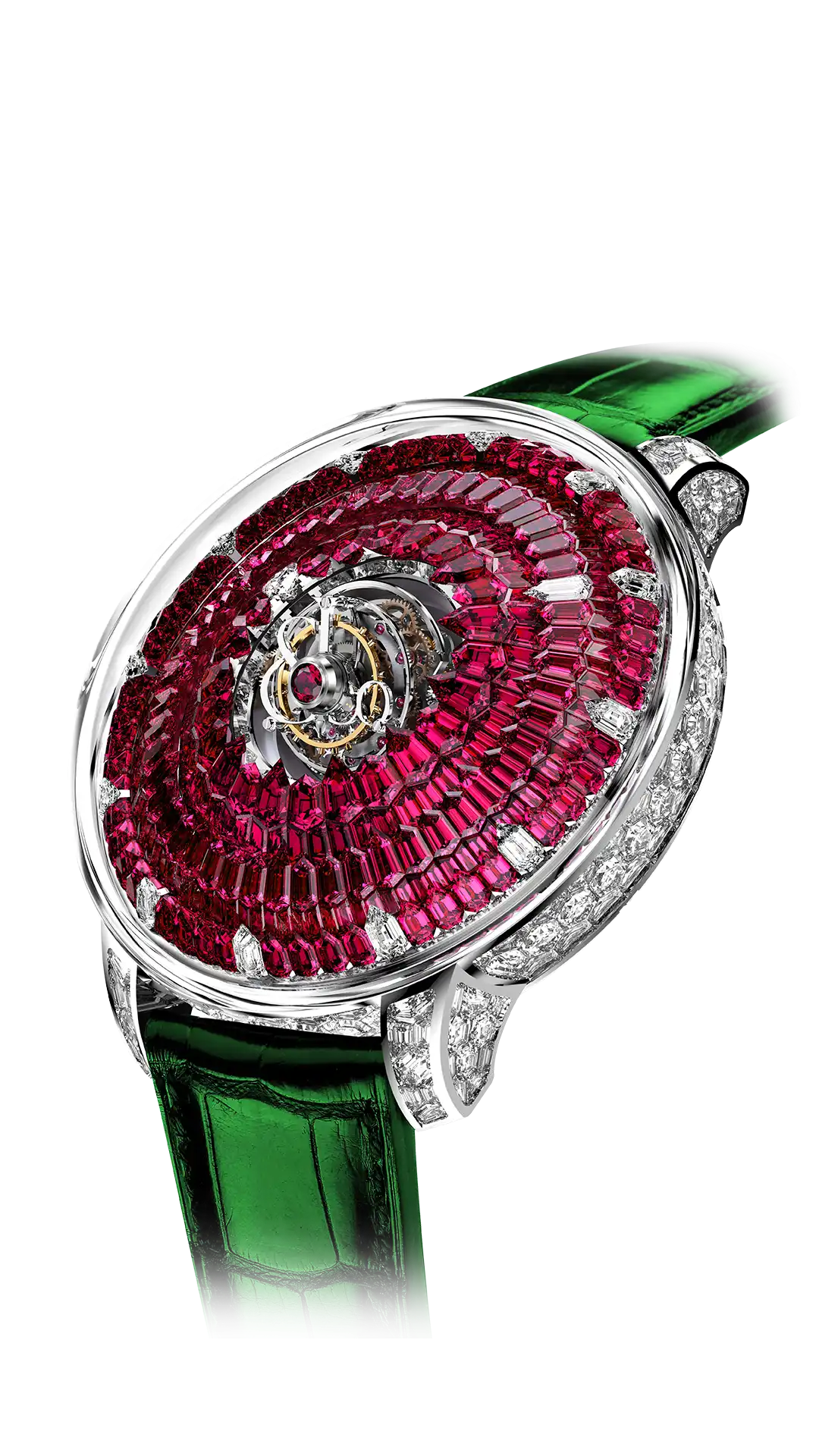
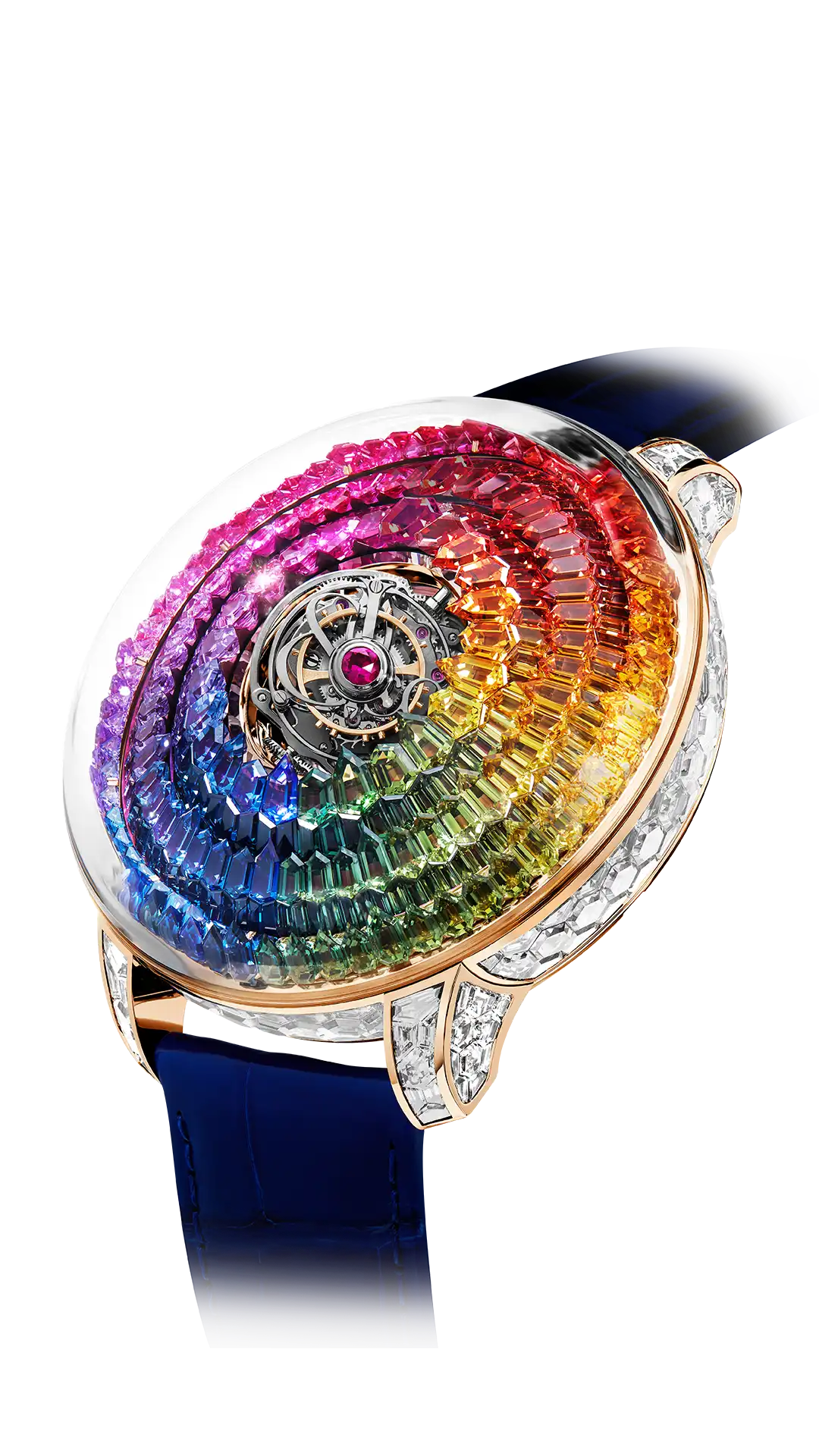
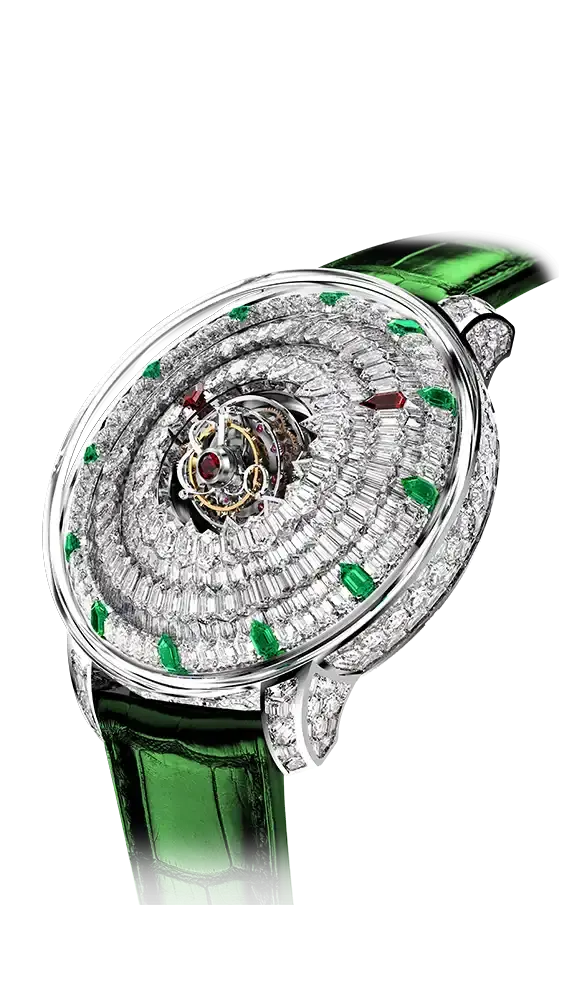





THE MYSTERY TOURBILLON
Tsavorites (White Gold)
I
DESIGN INSPIRATION
From a creative concept to design inspiration. To the first stroke of a pencil through hundreds of iterations. A timepiece like no other comes to life. The Mystery Tourbillon combines unheard-of levels of watchmaking and gem-setting sophistication, resulting in a mind-blowing creation.
II
THE DEVELOPMENT PROCESS
Central, flying, twin, back-to-back, triple-axis tourbillon. 538 baguette-cut white diamonds. 31.70 ct. 2 ruby pointers. 12 blue sapphire hour markers. 50-mm white gold case. 60-hour power reserve. 430 components.
III
THE COMPLICATIONS & FEATURES
IofIII
THE ROTATING RINGS
The mysterious part of The Mystery Tourbillon is that it doesn't have hands. Instead, hours and minutes are displayed on two concentric rings, lavishly set with overlapping gems. They tell time with the help of a single pointer, a gem of a different color than the others.
IIofIII
THE CENTRAL, TWIN, TRIPLE-AXIS FLYING TOURBILLON
There is no other tourbillon like The Mystery Tourbillon. It's a pair of tourbillons joined at the back, with a differential between them. They're sitting in a deep pit in the middle of the watch. They're rotating on three axes and without an upper bridge. The rotation speeds for the axes are respectively 1, 2 and 2 minutes, which is incredibly fast for such a sophisticated construction.
IIIofIII
PEAK GEM-SETTING
The 50-mm gold case of The Mystery Tourbillon is entirely set with gems. The invisible setting technique leaves no apparent gold and unites all the precious stones seamlessly. The caseband uses hexagon-cut gems, one of the rarest there is. As for the ones sitting under the sapphire crystal, they're a rare variant of the baguette-cut, shaped like arrows. These are overlapping, creating a three-dimensional effect like shards of ice in a melting iceberg. A total of over 12 different sizes and cuts are used to craft the 552 gems in The Mystery Tourbillon.
IV
THE LIFESTYLE
V
THE SPECIFICATIONS
THE MYSTERY TOURBILLON
Tsavorites (White Gold)











I of VI